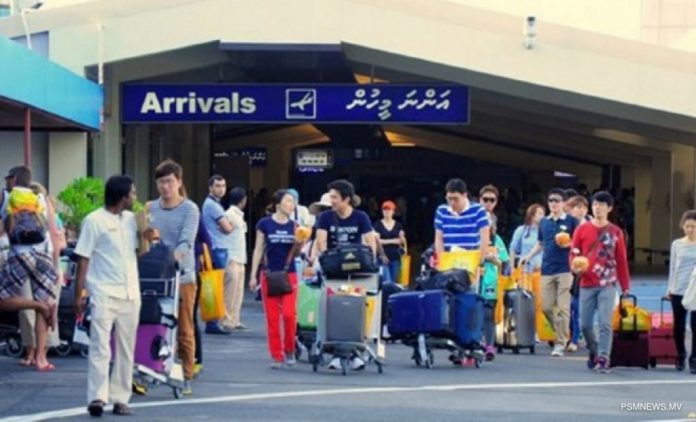
While the Maldives is getting ready to witness the debut of the 20th resort in the year 2019, Tourism Ministry statistics recorded 869 tourist establishments. These include 154 resorts (149 in operation), 12 city hotels, 549 guesthouses, and 103 safaris, roughly equivalent to some 45,000 beds. At present, there are over 30,000 jobs and the ratio is at 45:55 locals to foreigners.
With this continuous growth in the tourism sector, it opens a lot of job opportunities in the Maldives. However, it is rumored that locals do not get fair opportunities, especially at senior positions.
President of MAHRP and Director of Training at LUX, Mr Afeef Hussain indicated that there are several opportunities available for Maldivians within the industry. “I believe all school leavers should take chances, apply, attend to job fairs, interviews and most importantly if a job is offered, they should start somewhere. Candidates wait for a particular job to arise or to popup. Instead, they should rather start somewhere and keep going while searching for their dream job.”

“Another point is the fact that there is still a misconception about the tourism industry roles since no reliable data is available it’s hard to make a fact-based statements. However, many school leavers hesitate to join the hotel industry as they have certain misunderstandings about the industry; so, there is a lot of awareness that needs to be done both to school leavers and their parents too,” Afeef said.

Deputy Minister of Tourism, Assad Riza said they do hear that locals are not getting the right opportunities while resorts complain saying that they are unable to get the qualified skilled people.
“There is a shortage in the supply of skill compared to the demand in the industry,” he said. “The Ministry aims to lease islands for development of resorts with the strict regulation imposed by the government to hire locals from the nearby islands. Simultaneously, the resort developer should train the locals before the debut of the resort. So, when the resort reaches an operational state the locals will be ready. We opened up more than 500 job opportunities exclusively for locals on ‘World Tourism Day’ at Farukolhu, Hulhumale. Over 50 participants secured the jobs at the spot while others gave their names for proceeding interviews.”

He further mentioned that more efforts will come into play by next year along with the new developments of resorts.
One of the leading GMs from a renowned hotel chain in the Maldives indicated that there are two sides to the story.
“When I joined the tourism industry, I realized that it is important to have the individual drive to succeed,” the GM said. “The problem now is that Maldivians are sometimes very outspoken and not so patient with little things. They don’t want to struggle. The smallest inconvenience prompts them to give up. This is because of the weak Maldivian education system. A country like the Maldives, which is highly dependent on tourism needs vocational trainings and life skills. Even the smartest people are either reluctant or don’t have the courage to face the challenges and move ahead.”
On the flip side, the resorts completely strip off locals from applying to a specific job by simply inserting a requirement such as ‘only for foreign language speaking personnel’ terms in the job description. This is strictly in contrast to the UNWTO theme of community development.
Resorts spend over millions of dollars on resort investments while some boast about sustainability. They seriously neglect a fundamental aspect of sustainability – the development of the community.
“I went abroad to study a foreign language and met people from Mexico, United States, Costa Rica, Scandinavia who were completing their studies at high schools and before their enrolment in universities, they had to do 6 months course aboard. This is something we can do in the Maldives as well: sponsoring school leavers to study a foreign language either in the Maldives or abroad,” the GM added. “Maldivians do not even get a fair chance to compete. The authorities in the Maldives are very weak. The tourism industry should be made responsible by the respective Ministries and the government.
“Till date, no government has delivered the promise. Resort owners do promote good initiatives, but they fail to put in the effort. A good scheme should be implemented. Discussion forums should be held to increase the awareness of opportunities available at resorts. We do not have that yet. For example, places like Malaysia and Bali promotes local talent in the tourism industry. They hire people from nearby cities or districts. I give priority to local talents. We provide transfers so they can go back to their families as much as they can.”












